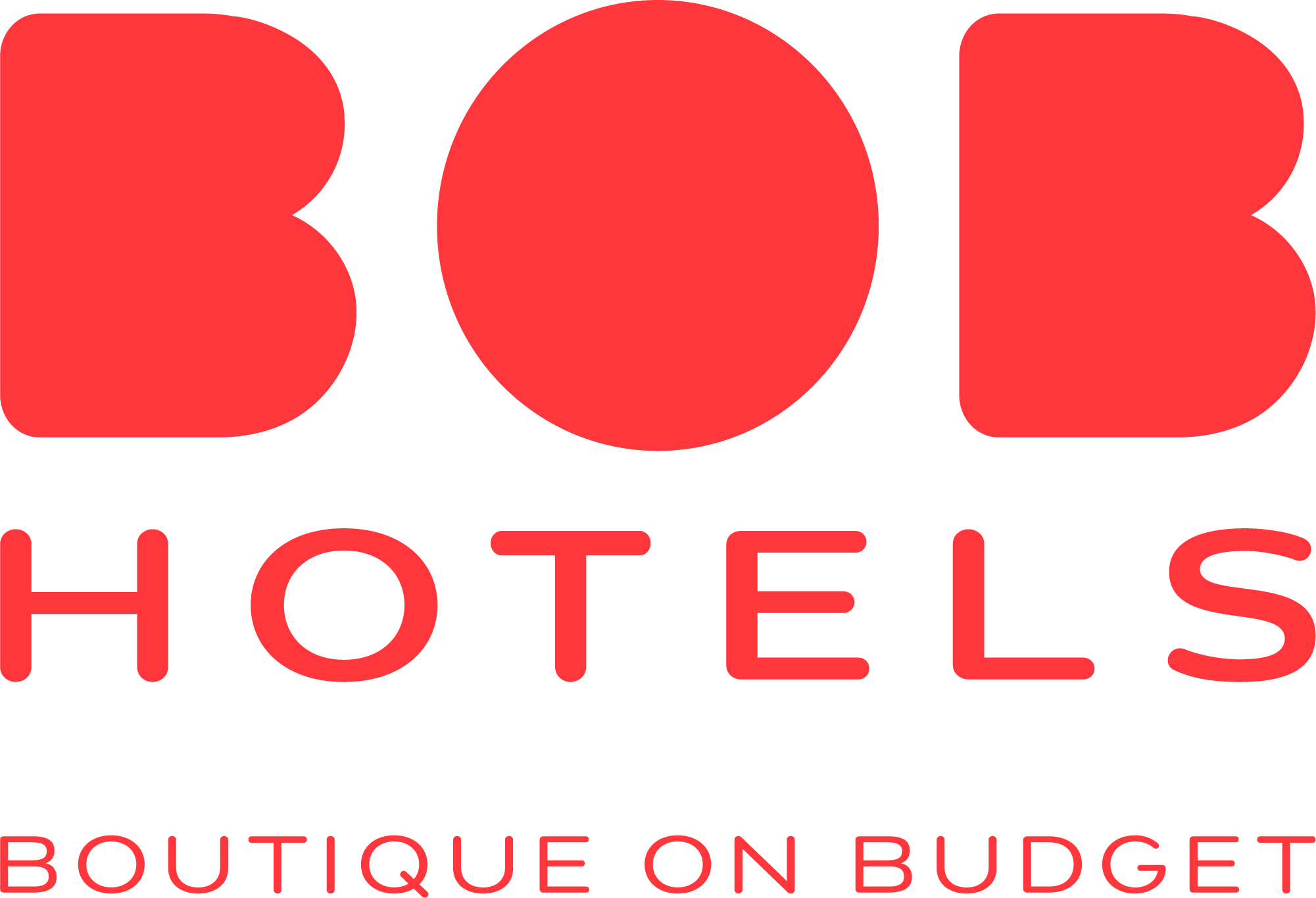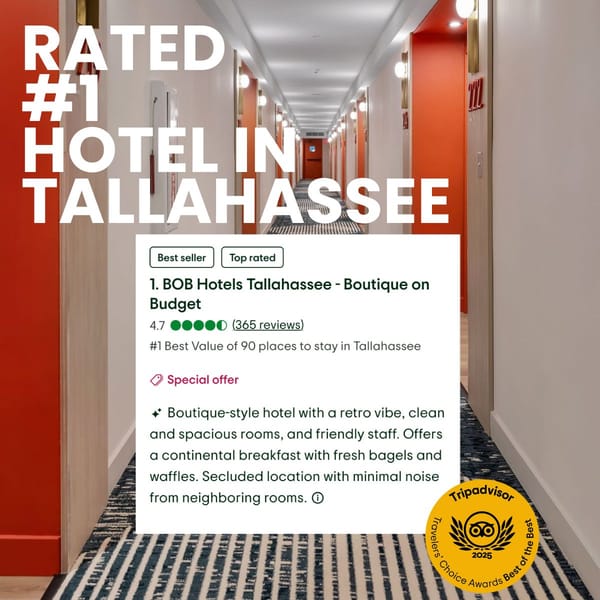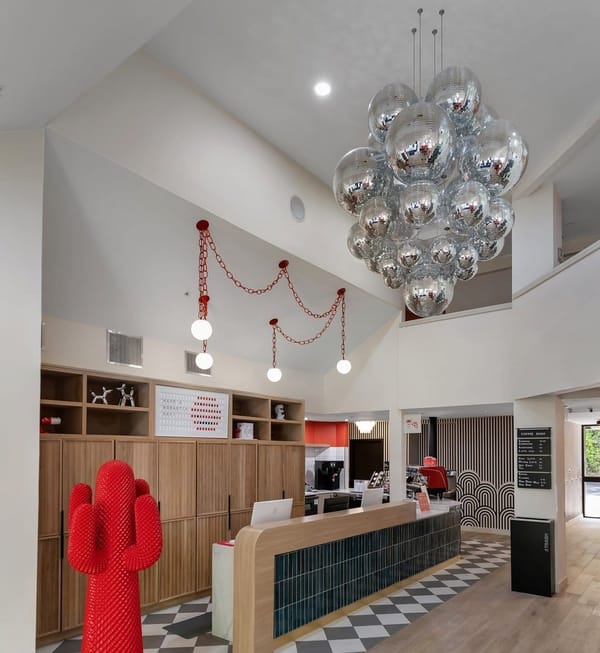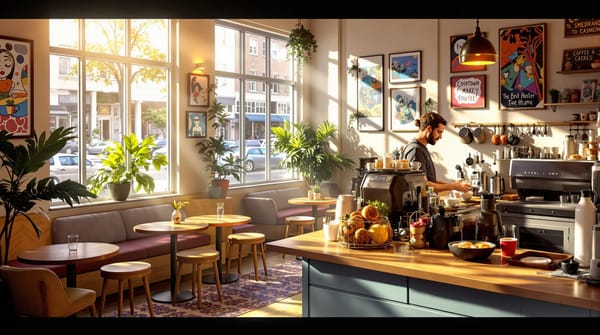5 Smart Tech Features in Budget Hotels
Explore how budget hotels are enhancing guest experiences with smart technology, from self-check-in kiosks to app-based room controls.
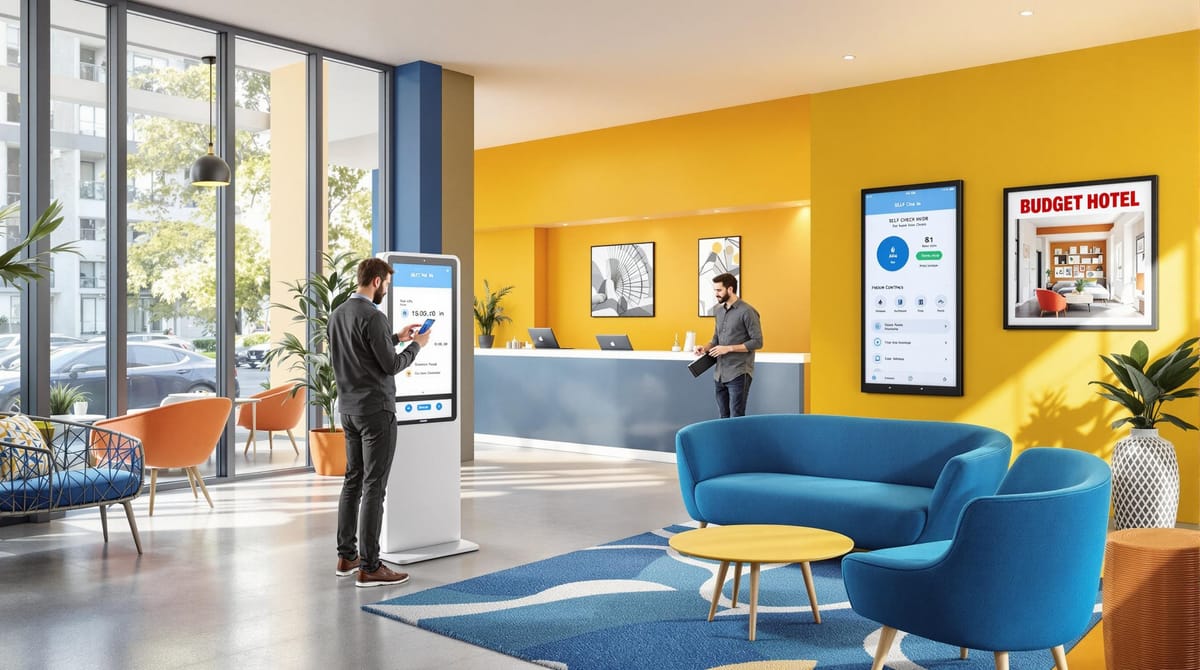
Budget hotels are stepping up their game with smart tech features that combine affordability and convenience. From self-check-in kiosks to app-based room controls, these innovations enhance guest experiences while keeping costs low. Here’s a quick look at the top five tech features transforming budget accommodations:
- Self-Check-In Kiosks: Skip the front desk with fast, automated check-ins.
- Smart TVs: Stream your favorite content and control room settings with ease.
- App-Based Room Controls: Adjust lighting, temperature, and more via smartphone.
- Energy Management Systems: Sensors save energy when rooms are unoccupied.
- Automated Guest Communication: Get instant updates and support through messaging apps.
These features are reshaping budget hotels, offering modern comforts without the hefty price tag.
What Makes a Smart Hotel?
1. Self-Check-In Kiosks
Self-check-in kiosks have transformed how budget hotels operate, offering a mix of convenience for guests and cost-efficiency for the properties. These kiosks allow guests to check in and get their keys within seconds, which is especially handy during busy periods or late-night arrivals [1].
By automating check-ins, hotels reduce staffing needs while speeding up the process for guests [3]. These kiosks handle tasks like verifying IDs, processing payments, and issuing keycards, making them a practical tool for modern budget hotels [1].
To make the most of this technology, hotels should focus on integrating the kiosks smoothly with their existing systems, ensuring secure payment processing, and providing easy-to-use interfaces. This approach has proven successful in managing large numbers of guests without lowering service standards [1][3].
Though the upfront costs might seem high, the long-term advantages - like cutting operational expenses, shortening wait times, and boosting guest satisfaction - make these kiosks a worthwhile investment for budget properties [1][3].
With check-ins simplified, many budget hotels are also turning their attention to enhancing in-room features, such as smart entertainment systems.
2. Smart TVs and Entertainment Systems
Budget hotels are transforming guest stays with smart TVs and integrated entertainment systems. These setups offer streaming services, personalized content, and even room control options, making visits more enjoyable [2].
The smart TVs used in these hotels are built with hospitality-specific features. Here's what they bring to the table:
- Content Security: Streaming technology ensures guests' privacy and keeps their data safe [5].
- Streamlined Management: Hotels can monitor and maintain these systems remotely, simplifying operations.
- Ease of Use: Guests can easily adjust room settings using voice commands [4].
By incorporating these advanced features, budget hotels are delivering high-end entertainment experiences without driving up costs [2]. Of course, this all depends on having strong Wi-Fi and compatible hardware, which also supports other smart hotel technologies.
These entertainment systems often pair with app-based controls, offering an extra layer of personalization and convenience.
3. App-Based Room Controls
App-based room controls allow guests to adjust settings like temperature, lighting, entertainment, and door locks directly from their smartphones. This adds a layer of convenience and customization while helping hotels lower their operational costs. These systems can also save energy by automatically adjusting settings when rooms are unoccupied, benefiting both guests and hotel operations [2].
Even budget-friendly hotels can adopt these systems by starting small. Modular setups that integrate with existing infrastructure are a great option. For instance, beginning with basic features like temperature and lighting controls lets hotels scale up as their budget allows.
To implement these systems effectively, hotels should prioritize:
- Ease of Use: The app should be intuitive and simple for guests to navigate.
- System Stability: Reliable Wi-Fi is essential for smooth operation.
- Energy Efficiency: Automated settings should be optimized to reduce energy consumption.
4. Smart Energy Management Systems
Smart energy management systems rely on sensors to monitor and control lighting, heating, and cooling in real time. These systems adjust settings based on room occupancy, helping hotels cut costs while maintaining guest comfort. For budget hotels, they’re a practical way to manage energy use efficiently.
Here’s how it works: when a guest leaves their room, the system automatically switches to an energy-saving mode. Once the guest returns, their preferred settings are restored. This automation not only reduces energy waste but also keeps guests satisfied.
"The cost savings can be substantial. For instance, smart thermostats and lighting systems can reduce energy consumption by up to 30%, leading to significant cost reductions over time" [4].
These systems are flexible and can grow with a hotel’s needs. A property might start with simple tools like smart thermostats or occupancy sensors in busy areas, then expand to more advanced features over time. To get the most out of these systems, hotels should track energy usage, perform regular maintenance, and train staff to use the technology effectively.
For budget hotels, this approach appeals to guests looking for affordable stays that align with their values. It reduces operating costs while showing a commitment to eco-friendly practices - something today’s travelers increasingly appreciate.
And it doesn’t stop at energy savings. Technology is also reshaping how hotels interact with guests, streamlining service at every touchpoint.
5. Automated Guest Communication
Budget hotels are increasingly using automated communication systems to improve guest interactions while keeping costs in check. These tools range from simple messaging platforms to more advanced systems integrated with hotel management software, allowing communication through messaging apps, emails, and even in-room devices.
For budget properties, automation is a smart way to deliver better service without overloading staff. Mobile apps, for example, let guests make service requests or receive updates directly on their phones, cutting down on the need for front desk support. This approach helps hotels maintain quality service with fewer employees.
Here’s why these systems work well for budget hotels:
- Simplify operations by automating routine questions and tasks.
- Maintain service standards even with lean staffing.
- Collect guest data to identify areas for improvement.
That said, the key is finding the right mix of automation and human interaction. Automated tools can handle basic requests, but staff should still be available for more personalized or complex guest needs.
To get started, hotels can:
- Begin with simple features like automated check-in messages.
- Add new functions based on guest feedback.
- Train staff to effectively use and manage the system.
- Review communication data regularly to refine services.
Some budget hotels are taking cues from major brands like Hilton, which uses its Connected Room technology to let guests check in, choose rooms, and unlock doors with their phones [4]. While budget properties might not match these features entirely, they can adopt similar ideas on a smaller scale.
The goal is to implement practical solutions that improve guest satisfaction while staying efficient. By using automated communication systems wisely, budget hotels can provide a more personalized and streamlined experience, all while staying true to their affordable model.
Conclusion
Smart technology is reshaping the budget hotel industry, blending modern amenities with affordability. Features like self-check-in kiosks, smart TVs, and automated systems have raised the bar for budget accommodations, offering a mix of convenience and comfort.
These tools not only help hotels cut operational costs but also enhance the guest experience. For example, smart energy management systems keep expenses in check, while automated communication tools ensure seamless service. Guests enjoy app-based room controls and personalized entertainment without breaking the bank.
This shift shows how budget hotels can integrate smart technology to improve the guest experience while keeping costs reasonable. It's proof that modern comforts don’t have to come with luxury-level price tags.
Research highlights AI systems and advanced energy solutions as key drivers for the future of budget hospitality. As these features become more common, travelers can make smarter choices by selecting hotels that incorporate these technologies.
When booking, look for hotels offering practical smart features like self-check-in, smart TVs, and energy-efficient systems. The rise of tech-savvy budget hotels is setting a new standard, proving that affordability and modern conveniences can go hand in hand.
FAQs
Which hotels have electronic check-in?
Many hotels, including well-known chains like Hilton, Hyatt, IHG, Wyndham, and Marriott, now offer digital check-in through their mobile apps. This allows guests to skip the front desk and use their smartphones to access their rooms. These systems are becoming more common as hotels look for ways to improve convenience and efficiency [1].
While larger chains lead the way with advanced digital options, more budget-friendly hotels are also starting to adopt these technologies. Many begin with self-check-in kiosks or simple app features. For example, BOB Hotels Tallahassee has introduced modern check-in options while keeping rates affordable [3].
When choosing a hotel with electronic check-in, consider:
- App availability: Does the hotel provide a mobile app for check-in?
- Device compatibility: Will the system work with your smartphone?
The rise of digital check-in is transforming the hospitality industry, helping hotels address staffing challenges while maintaining reliable service [2]. Budget hotels, in particular, are showing that it's possible to offer modern conveniences without raising prices. This shift is changing what guests expect from value-focused accommodations, making features like smart check-in more accessible to everyone [2][4].
